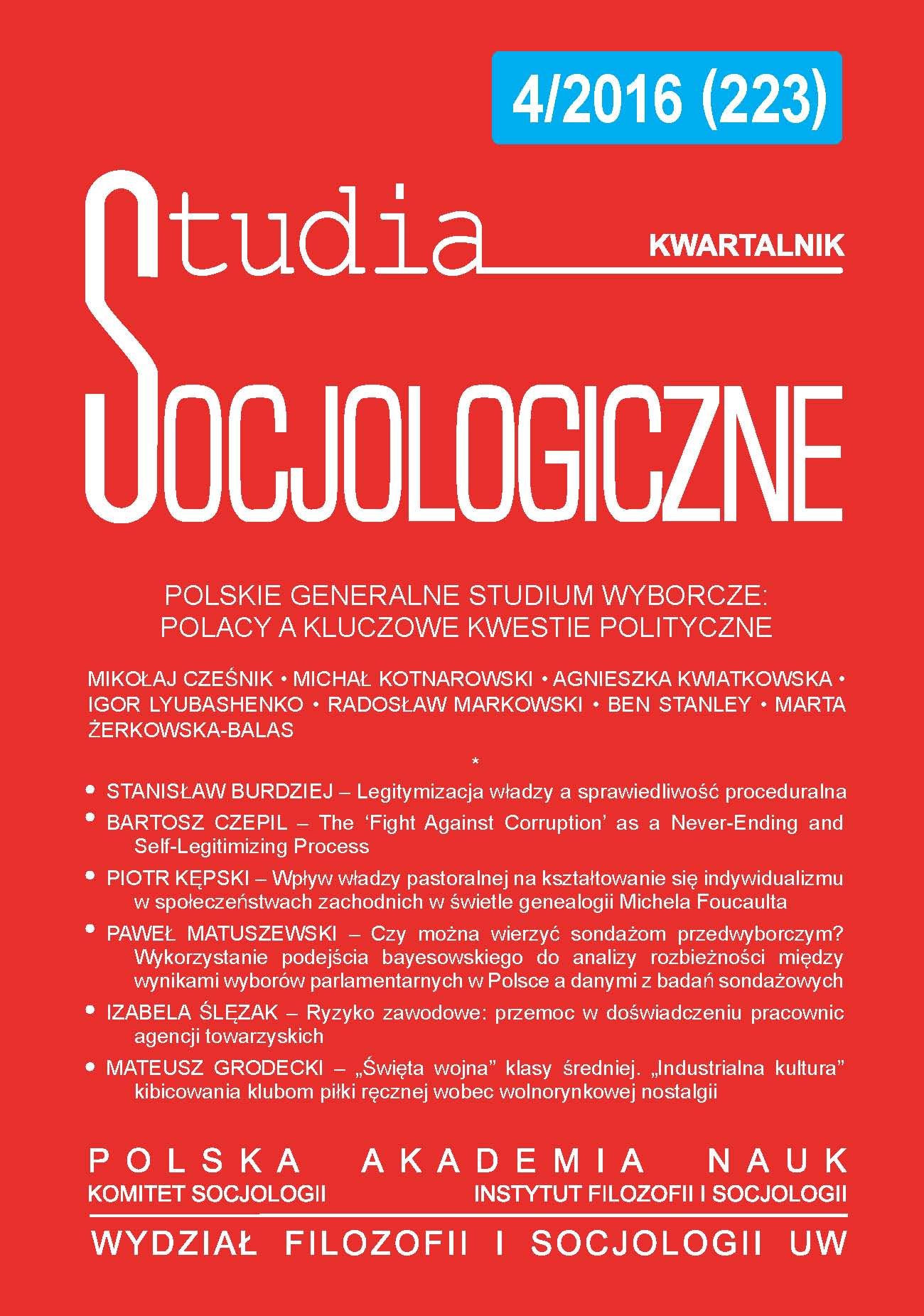The ‘Fight Against Corruption’ as a Never-Ending and Self-Legitimizing Process
The ‘Fight Against Corruption’ as a Never-Ending and Self-Legitimizing Process
Author(s): Bartosz CzepilSubject(s): Social Sciences, Sociology, Sociology of Politics
Published by: Instytut Filozofii i Socjologii Polskiej Akademii Nauk
Keywords: corruption; anti-corruption; social constructionism; self-legitimacy
Summary/Abstract: The article is an analysis of various unintended consequences of the contemporary fight against corruption. The author employs a social constructionist approach to argue that recent anti-corruption developments show that the ‘fight against corruption’ will never stop regardless of how effective it may be. Moreover, the anti-corruption crusade can be characterized as a self-legitimizing process because it creates new areas for anti-corruption actions by constructing new forms of corruption, thereby justifying the continuation of anti-corruption efforts. As a point of departure, the author analyses corruption as a socially constructed phenomenon in order to remind us that because of its inherent features, corruption is an irremovable part of the public sphere, thus making anti-corruption actions never-ending. Then certain paradoxes and developments in contemporary anti-corruption efforts are presented to further explain the never-ending and self-legitimizing nature of fighting corruption. The penultimate part highlights various new definitions of corruption proposed by social scientists and the questions raised by these conceptual undertakings. In the concluding section, the problems resulting from anti-corruption dynamics are presented.
Journal: Studia Socjologiczne
- Issue Year: 223/2016
- Issue No: 4
- Page Range: 201-228
- Page Count: 28
- Language: English

